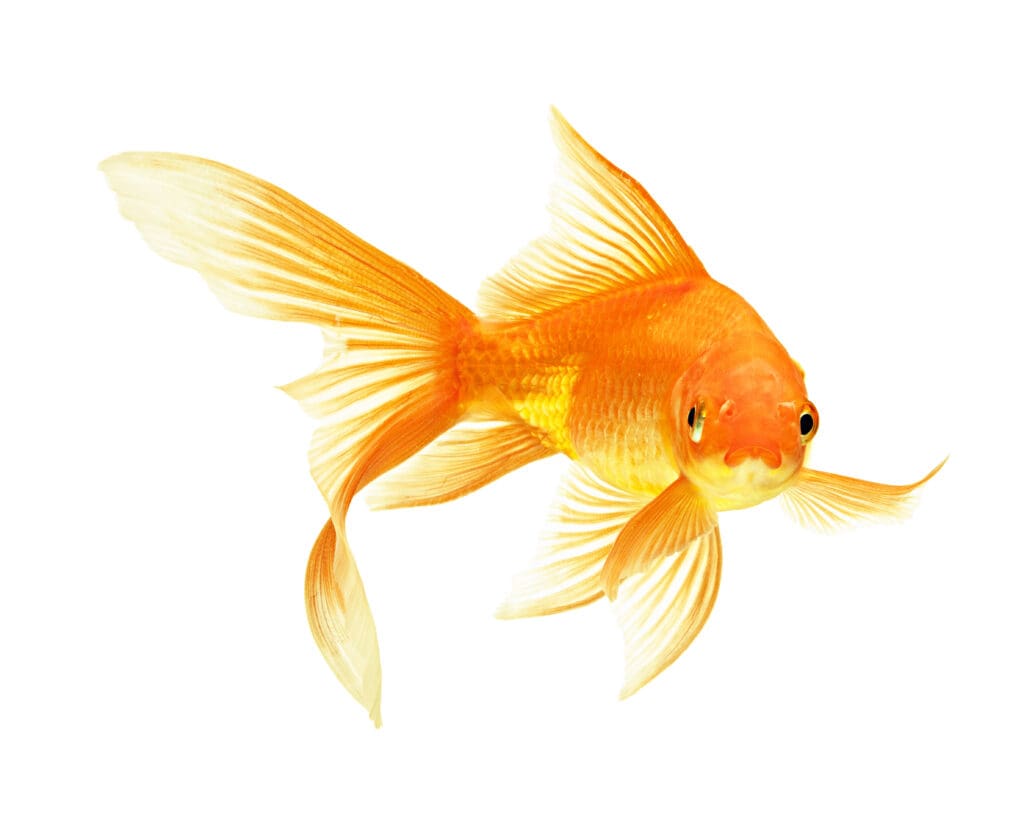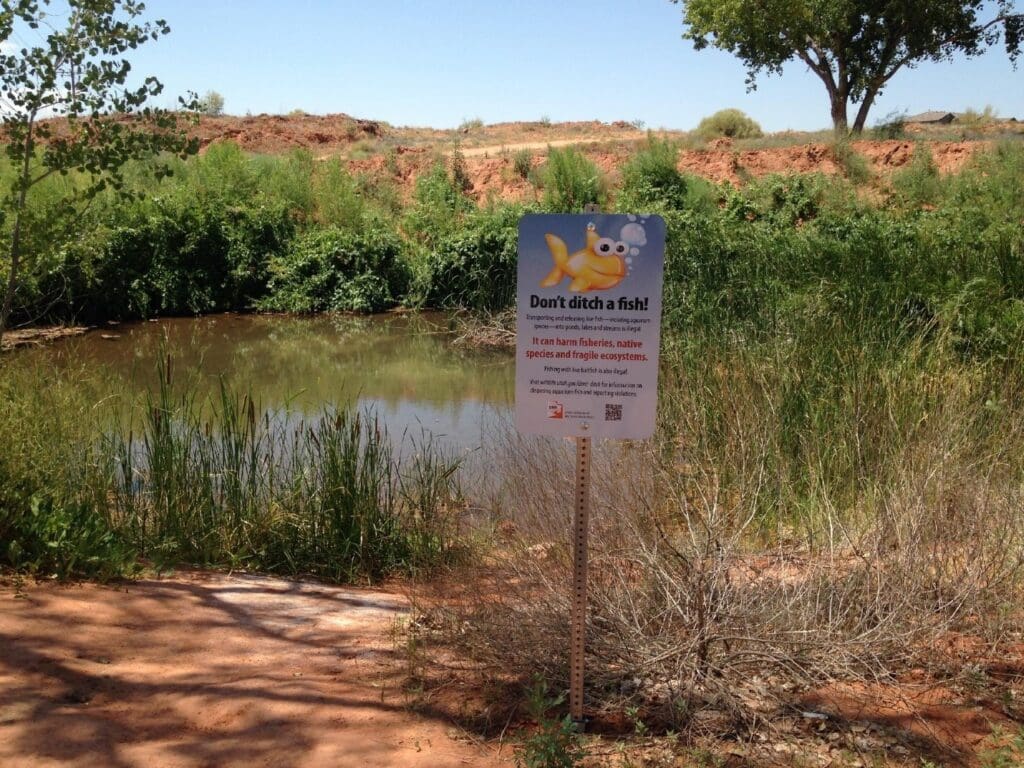Don’t Ditch a Fish!
One small action can turn into an ecosystem’s worst nightmare

Have you ever had a pet fish? The underwater world has captivated people for generations, and aquatic pets have become increasingly popular. Owning a fish can be a low-maintenance, inexpensive addition to your family. However, incorrectly discarded pets can cause severe environmental damage. The Utah Division of Wildlife Resources (UDWR) Don’t Ditch a Fish initiative is an educational program aiming to decrease non-native fish introductions in Utah’s waterbodies.
The Problem with Ditching Your Aquatic Pet
Owning a pet fish can be a long-term commitment. Goldfish lifespans differ between varieties, but they can live to be 10-15 years old if taken care of correctly The oldest goldfish ever reported lived to be 43 years old!
Occasionally, fish owners decide they no longer want to care for their pet and release it into the wild. Owners often assume their fish will enjoy its freedom outside the confines of a bowl, make new fish friends, and swim happily ever after. Unfortunately, that isn’t likely to happen. Aquarium pets released into the wild could starve, introduce harmful disease or parasites, compete with native fish for limited resources, and prey on native species.
Know the Law
Releasing non-native fish into the wild can cause serious environmental problems, so the State of Utah created several key laws:
- It is illegal to introduce fish into Utah waters.
- It is illegal to transport live fish from one waterbody to another.
- It is illegal to fish using live baitfish.
Once illegally introduced fish become established in a waterbody, the fish community there is forever changed. Fisheries ruined by aquarium fish require expensive chemical treatments and hundreds of hours in planning and restoration. Don’t ditch your pet fish. Call UDWR for help properly disposing of aquarium species.

You Can Help!
When deciding to adopt a fish it is essential to carefully consider your commitment. Research growth potential, social behavior, diet, and long-term care requirement. Other valuable information on tank size, water quality, and compatibility with other fish can be provided by pet stores and online aquarist societies.
Together we can greatly reduce non-native fish introductions and support healthy native fish communities by following these steps:
- Don’t ditch a fish — whether it’s an unwanted pet or a living fish from another waterbody
- Dispose of aquarium fish properly (call UDWR if you need help)
- Report observations of invasive fish to us by calling 1-800-662-3337
- Report observations of illegal introductions by calling 1-800-662-3337
By following these guidelines, we can protect Utah’s aquatic ecosystems for generations to come.
